Teaching Excellence Awardees - from past years
2024 Laureates
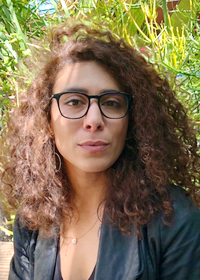 Sophia Azeb, Department of Critical Race and Ethnic Studies, UC Santa Cruz
Sophia Azeb, Department of Critical Race and Ethnic Studies, UC Santa Cruz
“Professor Azeb is brilliant. She brings to the classroom such an honest connection to what it means to be a person. I don’t feel intimidated by her presence, she welcomes everyone and every thought. She is there to teach us how to live in relation to each other. Every single thing she says is inspiring and extremely thought out. She is open and real, and this invites a lot of comfort in the classroom. She responds to everyone in the class honestly and with grace and patience, gently guiding us in the right direction. Her strength is awe-inspiring, I do not know how she does it. Everyone I have met in her classes is floored by her existence. I could learn from her forever.”
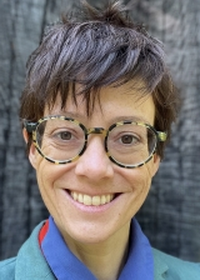 Olivia Bailey, Department of Philosophy, UC Berkeley (Hasenkamp Award)
Olivia Bailey, Department of Philosophy, UC Berkeley (Hasenkamp Award)
“When instructions began, it did not take long for me to see why Dr. Bailey is so loved… As a result of the atmosphere that Dr. Bailey created in the classroom, Moral Psychology turned out to be the most interactive undergraduate (non-seminar) course I took. I got to hear so many of my classmates’ diverse opinions on issues. These opinions were not only shared during lectures but also after lectures… However, the main spirited talks happened during her office hours, which were always so filled with enthusiastic students that sometimes we ran out of seats… I can honestly say that because of Dr. Bailey’s friendly and down-to-earth demeanor, I learned as much from my classmates as I did from my professor. I looked forward to writing my term papers, which often provided me with an opportunity to respond to a classmate’s remark or objection. In my opinion, the magic of Dr. Bailey as a teacher is the respect she shows her students; she effectively conveys that she values your voice as a philosopher and takes your opinion seriously. This respect was particularly conveyed when she urged us to complete the evaluation for her course.”
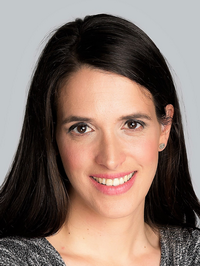 Hadar Dancig-Rosenberg, Legal Studies, UC Berkeley
Hadar Dancig-Rosenberg, Legal Studies, UC Berkeley
“Hadar is truly the most amazing professor I have ever had. She facilitated class discussions about difficult and potentially triggering topics in a way that made me feel respected, heard and cared for. She encouraged all of her students to dig deeper and reevaluate their preconceived notions about crime, rehabilitation, and the purpose and functions of the legal system… Berkeley has no shortage of world-class professors, and Hadar is truly the best of the best.
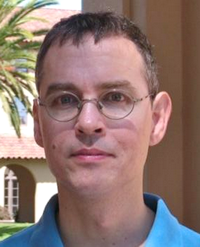 Erik Ellis, Department of Writing and Rhetoric Studies, Stanford
Erik Ellis, Department of Writing and Rhetoric Studies, Stanford
According to his student, Erik Ellis transformed the standard writing curriculum into exhilarating assignments, encouraging students to discard rigid essay formats and overly complex language and embrace ambiguity and simplicity in a way that allows for critical thinking and exploration. Rather than presenting pre-determined arguments, Dr. Ellis’s approach makes writing a tool for discovery that reaches more nuanced conclusions. Dr. Elli’s student credits their professor for revolutionizing their understanding of writing. They endorse him for his transformative approach to teaching writing, ending the nomination essay with “Thank you, Erik!”
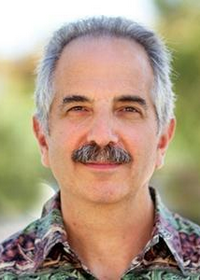 Peter Minowitz, Department of Political Science, Santa Clara University
Peter Minowitz, Department of Political Science, Santa Clara University
“Dr. Minowitz has been an excellent mentor and friend to me during the two and a half years I have known him. His senior seminar about Friedrich Nietzsche was my favorite class I have ever taken, and he was always available to consult about anything related to political philosophy. He explained Friedrich Nietzsche’s thought in remarkable clarity and detail while making his lectures lighthearted enough to keep every student engaged... My underclassman friends who took Dr. Minowitz’s Introduction to Political Philosophy class remarked how much their writing improved under his instruction and how he opened their eyes to the depth of thinkers like Plato, Hobbes, and Machiavelli. My fellow upperclassmen who took his Nietzsche seminar fondly remember his lively sense of humor, brilliance as a scholar, and the amazing ease with which he communicates complex topics to students.”
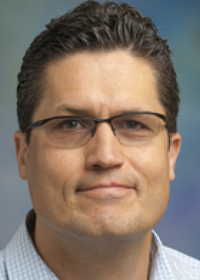 Giovanni Peri, Department of Economics, UC Davis
Giovanni Peri, Department of Economics, UC Davis
According to his student, Dr. Giovanni Peri is an outstanding professor, researcher, mentor, and role model who combines professionalism and organization with a flexible approach, allowing students to pursue their research interests while he provides invaluable guidance. Dr. Peri maintains high standards but is also caring, offering support through office hours and email. He assisted his student with their research and graduate school applications, and his kindness and compassion contributed enormously to his success. Dr. Peri’s dedication and enthusiasm for his student’s work inspired them to pursue a career in a related field.
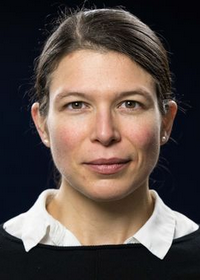 Wendy Salkin, Department of Philosophy, Stanford
Wendy Salkin, Department of Philosophy, Stanford
“Prof. Salkin always managed to make dense analytic philosophy concepts feel manageable and compelling. Her curriculum combined traditional ideas from philosophy with contemporary literature on race and prisons in sociology and political theory… Prof. Salkin always worked through arguments with us rather than merely presenting them to us, and her course powerfully shaped my current academic and professional trajectory…Prof. Salkin was the best advisor I could have possibly asked for. Even when I felt lost in my own writing process, Prof. Salkin always saw the best version of my arguments and pushed me to be the most precise and rigorous version of myself.”
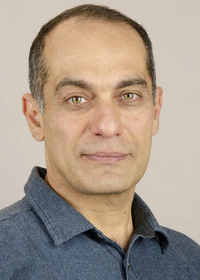 Nasser Zakariya, Rhetoric Department, UC Berkeley
Nasser Zakariya, Rhetoric Department, UC Berkeley
“Professor Zakariya is one of the most engaging lecturers I have ever encountered… It really feels like he is inviting students to stand with him as scholars in a true discussion. He also holds students accountable to classroom contribution in ways that are accessible to them. It feels as if he has tried every resource to create a sort of democratized space of learning and collaboration… I always felt like each day of class opened a new window into my own inquiry of the world… He teaches with contagious enthusiasm and urgency that leaves students continuing discussions outside of the classroom… He is a very humane teacher. His compassion and vested interest in the learning of each individual student is palpable… His humility is evident when he makes a self-deprecating joke that never fails to elicit some laughter in the class… This curiosity and warmth add to the classroom culture in a way that further encourages reflection, contribution, and collaboration. He is one of the best professors I ever had at the UC Berkeley.”

2023 Laureates
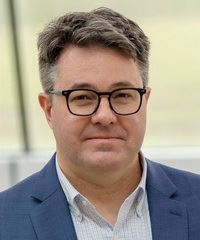 Hans Bork (Stanford) – Classics (Latin)/ Digital Humanities. Ph.D., UCLA 2018, M.A.; Washington University in St. Louis, 2011, B.A.; Classics, UMass Amherst, 2009, B.A.; English Literature, UMass Amherst, 2009.
Hans Bork (Stanford) – Classics (Latin)/ Digital Humanities. Ph.D., UCLA 2018, M.A.; Washington University in St. Louis, 2011, B.A.; Classics, UMass Amherst, 2009, B.A.; English Literature, UMass Amherst, 2009.
I am one of the Latin Language and Literature faculty at the Stanford Department of Classics, though I like to think of myself as a "Historian of Language" — someone who studies not just how languages are used as they are, and why that is so, but also how languages change over time, and the social forces that cause them to change. As a result, I tend to teach and write about texts, people, and time periods that are “on the margins”: comedy and vernacular texts; the enslaved, itinerant performers, non-elite peoples. That is, non-“Classical” texts and topics. In both teaching and scholarship, my conviction is that history and literature are shaped as much by unknown participants and unnamed readers as by “big names.” I want my students to explore and think about history—literary, linguistic, temporal—as something vital in their daily lives. Something they participate in, and something they can change.
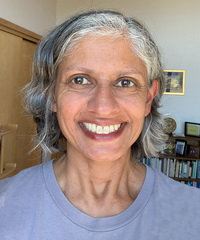 Seeta Chaganti (UC Davis) – English (Old and Middle English Literature); Ph.D., Yale University, 2001; M.A., Georgetown University, 1995; A.B., Harvard University, 1989
Seeta Chaganti (UC Davis) – English (Old and Middle English Literature); Ph.D., Yale University, 2001; M.A., Georgetown University, 1995; A.B., Harvard University, 1989
Seeta Chaganti joined the faculty of the UC Davis English department in 2001. She specializes in Old and Middle English poetry and its intersections with material culture. Her first book was The Medieval Poetics of the Reliquary (Palgrave Macmillan, 2008). Her new book, Strange Footing (Chicago, 2018) argues that to medieval audiences, poetic form was a multimedia experience shaped by encounters with dance. In this work, she proposes a new method of reenacting medieval dance that draws upon experiences of watching contemporary dance. Her current work argues that early English law has enabled both state-sanctioned and extrajudicial violence in the US by naturalizing the relation between whiteness and property.
Chaganti currently serves as a Trustee of the New Chaucer Society (2018-22); an Executive Board Member of Race before Race; and a member of Medievalists of Color.
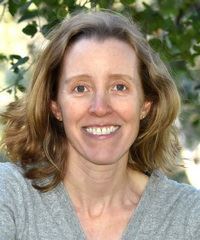 Lianne Kurina (Stanford) – Medical: Primary Care and Population Health/Human Biology (Hasenkamp Award)
Lianne Kurina (Stanford) – Medical: Primary Care and Population Health/Human Biology (Hasenkamp Award)
I am an epidemiologist and have investigated topics from stress, to sleep, to the health of active-duty military personnel. In addition to research and teaching, I direct the Program in Human Biology at Stanford, the second largest major at Stanford. Human Biology is filled with wonderful students eager to pursue interdisciplinary training in order to address some of the most pressing problems facing humanity.
Since starting my teaching career decades ago, I have been thankful for the opportunity to work with students. One of my favorite courses to teach is introduction to statistics, a delightful challenge because: students are required to take statistics for our major; statistics is, by reputation, extremely boring; and students need to additionally learn a coding language in this course, which many have avoided doing thus far. What I enjoy more than anything is seeing the confidence and ownership students gain with coding and statistics as the quarter progresses. That moment when students transition from dragging their feet and feeling anxious about their abilities to jogging along and asking questions and sharing new code with me – that is just the best.
It’s hard to imagine anything more satisfying than the job we teachers have of allowing light into peoples’ lives in such a way that they see the world differently. In my mind, things that we don’t understand are opaque and have fuzzy outlines. I think of good teaching as helping to make one small part of the world clearer for students. That is what teaching means to me.
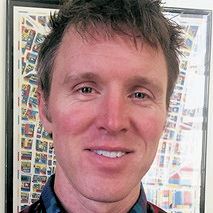 Tom McEnaney. Associate Professor of Comparative Literature, Spanish & Portuguese, and New Media, University of California, Berkeley.
Tom McEnaney. Associate Professor of Comparative Literature, Spanish & Portuguese, and New Media, University of California, Berkeley.
Tom McEnaney works on the history of media and technology, Argentine, Cuban, and U.S. literature, sound studies, linguistic anthropology, computational (digital) humanities, and new media studies. For McEnaney, the classroom is a laboratory where ideas can be tested and new creations made, a forum where students are challenged to learn to listen to one another, and a community in which they can place their trust in order to be receptive to different perspectives. He has devoted the last decade to creating welcoming and challenging classes that emphasize the importance of academic research in today’s technologically and culturally diverse world. Working in different media such as podcasting, 3D printing, and Excel spreadsheets, McEnaney strives to give students different avenues to reflect on the meaning, value, and relevance of the materials they study. He cares deeply about how material differences change meaning; the medium matters because it helps students consider how meaning changes when one encounters the same basic message on Twitter, in a novel, or on TV. Working in different media helps students understand the unique capabilities of writing text and, in McEnaney’s experience, vastly improves their appreciation for and talent for essay writing. In addition to teaching in the classroom, McEnaney has devoted years to diversity training workshops, student outreach, recruitment, and mentorship.
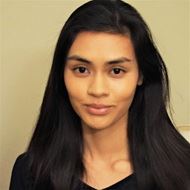 Esther Yu. Assistant Professor of English Esther Yu, Stanford University.
Esther Yu. Assistant Professor of English Esther Yu, Stanford University.
As a fellow at the Stanford Humanities Center, Esther Yu has been working on a forthcoming book, Experiencing the Novel: The Genre of Tender Conscience, which argues that subjects in seventeenth-century England claimed political voices through identifying as what they called “tender consciences.” The convictions of Yu’s research have thoroughly informed her pedagogical principles even during these trying times, for as early modern “tender consciences” realized, developing dispositions of care and sensitivity—even to texts that seem strange or initially difficult or irrelevant—can yield world-historical consequences.
Yu is especially mindful of the cultural divide that makes it difficult to ask students grappling with so many crises at once to read epic poems and epistolary novels with the intense receptivity that they require. But it is a challenge she feels especially compelled to take up, not least of all because of her own oblique relationship as a postcolonial subject and minority scholar to the archive of English literature. Yu encourages students from diverse backgrounds to recognize the interpretive urgency—and creative, transformative possibilities—that attend experiences of textual distance and cultural alienation or hostility.
2022 Laureates
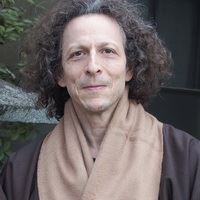 Michael Dylan Foster, Ph.D., Dept. of East Asian Languages and Cultures, Professor and Chair, UC Davis
Michael Dylan Foster, Ph.D., Dept. of East Asian Languages and Cultures, Professor and Chair, UC Davis
YouTube Video: https://youtu.be/N7jqioAyirI
He completed his studies at Stanford, Kanagawa (Japan), UCB, and Wesleyan. His book about Japanese folklore entitled “The Book of Yokai” is available on Amazon and as an audiobook on Audible. The student who nominated him described how Dr. Foster made Japanese folklore a relevant and powerful tool for understanding oneself and others in today’s western culture.
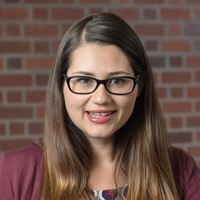 Laura D. Gutiérrez, Ph.D., Dept. of History, Assistant Professor, University of the Pacific is at the forefront of current debates over diversity, equity, and inclusion. Border studies is her primary focus, and her recent research centers on the history of Mexican deportations in the US. Dr. Gutiérrez completed her training at USC, Stanford, and UCSD. Her nominator described the many creative and innovative techniques used by Dr. Gutiérrez to foster personal connections between students and the history that they are learning.
Laura D. Gutiérrez, Ph.D., Dept. of History, Assistant Professor, University of the Pacific is at the forefront of current debates over diversity, equity, and inclusion. Border studies is her primary focus, and her recent research centers on the history of Mexican deportations in the US. Dr. Gutiérrez completed her training at USC, Stanford, and UCSD. Her nominator described the many creative and innovative techniques used by Dr. Gutiérrez to foster personal connections between students and the history that they are learning.
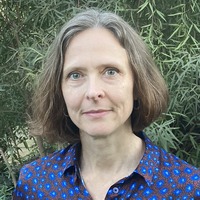 Claire Waters, Ph.D., (Hasenkamp Award) Dept. of English, Affiliated Faculty - Program in Classics, Dept. of French and Italian, Professor and Chair, UC Davis, PBK Northwestern 1991.
Claire Waters, Ph.D., (Hasenkamp Award) Dept. of English, Affiliated Faculty - Program in Classics, Dept. of French and Italian, Professor and Chair, UC Davis, PBK Northwestern 1991.
YouTube Video: https://youtu.be/9bC3A9IHa2s
Her primary research area is late medieval literature (Middle English and Latin). Aside from being a much-beloved professor, Dr. Waters has received many awards and accolades, and her publishing accomplishments are impressive. Her nominator described her as dedicated, devoted, and fun. Indeed, one of her current works is entitled “Mystics, Goddesses, Lovers, and Teachers.” Dr. Waters completed her studies at Harvard, Cambridge, and Northwestern and was inducted into PBK in 1991.
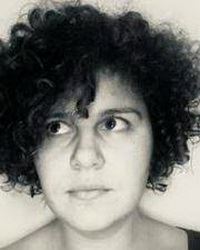 Clancy Wilmott, Ph.D., Dept. of Geography and Berkeley Center for New Media, Assistant Professor, UC Berkeley.
Clancy Wilmott, Ph.D., Dept. of Geography and Berkeley Center for New Media, Assistant Professor, UC Berkeley.
YouTube video: https://youtu.be/ylniX-u8uZA
Highly accomplished in her field, Dr. Clancy Wilmott is passionate about ensuring success and self-empowerment for all students, including those who have historically been deterred from pursuing math, technology, and data science owing to institutional barriers. Her student nominator characterized her as possessing “signature humor, warmth, and panache.” The following is an excerpt from Dr. Wilmott's nomination letter: "When Professor Wilmott comes up in conversation, I don’t have the time to exchange this story and communicate to people the incalculable ways she has impacted my life, especially with everyone else chiming in to praise her, so I’m nominating her for this award in the hope that she gets the recognition she deserves - not just for the way she has impacted my life, but the way I know she impacts the lives of every person who is lucky enough to find their way into her classroom."
2021 Laureates

Courtney Lehmann, Ph.D.; Dept. of English, Director of the Powell Scholars Program, University of the Pacific; PBK University of North Carolina-Chapel Hill 1989 (Hasenkamp Award)
View a video of Dr. Lehmann discussing her teaching philosophy
Dr. Courtney Lehmann goes above and beyond to provide the most holistic and meaningful education to each of her students. She is the Director of the Powell Scholars Program, the University of the Pacific's highest academic merit scholarship that funds tuition, independent research, and study abroad opportunities. The program's goal is to cultivate leaders and global thinkers to make a difference in our communities, and Dr. Lehmann runs the club with fortitude and optimism. She is absolutely dedicated to developing students as moral human beings who strive to make the world a better place. For example, in my class, she helped facilitate an SAT tutoring initiative for disadvantaged kids in the Stockton community to help equalize opportunity despite socioeconomic status. In our thinking as students, she continues to push students to actualize our goals fully. Everything that she does contributes to an environment where students truly feel as though they can realize their full potential. For this, I deeply thank Dr. Lehmann for her incredible academic achievements and the knack she has for drawing out of each of her students.
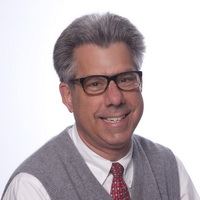
 Paul Graham Fisher M.D.; Dept. of Neurology and Neurological Sciences, Chief of the Division of Child Neurology, Stanford University
Paul Graham Fisher M.D.; Dept. of Neurology and Neurological Sciences, Chief of the Division of Child Neurology, Stanford University
View a video of Dr. Fisher discussing his teaching philosophy
Out of all the teachers I had at Stanford over my four years there, I cannot think of a more deserving instructor for this award than Dr. Paul Fisher. He cares deeply about his students, inspires them to be better students and more thoughtful people, and facilitates critical thinking in the classroom. I was never officially Paul’s mentee, but he always made time to meet with me and check in on how I was doing. He would tell me that the path to medicine is a marathon, not a race, and in order to be a good doctor in the future, I needed to take the time to explore my diverse interests and put myself out of my comfort zone. Largely thanks to his encouragement and reassurance...I am currently pursuing a master’s in bioinformatics at Imperial College London under a Fulbright Scholarship. Paul always facilitated critical, analytical, and creative thinking in the classroom.... Paul not only taught the basics of epidemiology, but he also taught us how to process and communicate what we learned in the context of the real world.
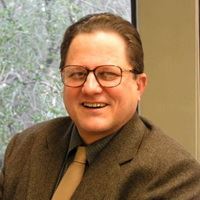 William Swagerty, Ph.D.; Dept. of History, Director of the John Muir Center, University of the Pacific
William Swagerty, Ph.D.; Dept. of History, Director of the John Muir Center, University of the Pacific
View a video of Dr. Swagerty discussing his teaching philosophy
Dr. Swagerty is the archetype of a dedicated and passionate teacher… it is so clear how much he genuinely cares about his students. Here, [at the University of the Pacific] students…feel part of a network, with educators truly dedicated to our success. Dr. Swagerty is a perfect example of such an educator. I have taken three classes with him; John Muir's World, Historical Imagination, and Native American History. In every class, it is clear how extensively he knows every single element of every topic he teaches about. One can see his love of the field. As my advisor, Dr. Swagerty constantly believed in me and gave me the confidence to achieve. Without Dr. Swagerty's constant encouragement, I don't know if I would have had the confidence to present a paper of mine. For his dedication to his students and passion for the subject, I believe Dr. Swagerty deserves recognition for his outstanding teaching.
2020 Laureates
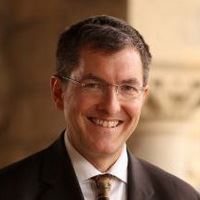 R. Lanier Anderson, J.E. Wallace Sterling Prof. in Humanities, Sr Associate Dean of Humanities and Arts, Dept. of Philosophy, Stanford University
R. Lanier Anderson, J.E. Wallace Sterling Prof. in Humanities, Sr Associate Dean of Humanities and Arts, Dept. of Philosophy, Stanford University
Despite being exceptionally busy as chair and now Dean, Professor Anderson often spends up to an hour after class answering clarifying questions or delving into a deeper discussion. Crucially, he never makes students feel bad for taking up his time or that he is eager to leave the conversation and go elsewhere. His attention to a student in the moment is absolute, the kind of affirming encouragement that tells us that we are a priority. … Professor Anderson’s commitment to student engagement helps students develop analytical abilities that they can then deploy, in his class, in service of questions of personal, intellectual import. … Not only is he a remarkable researcher, but it is also clear that he cares deeply about teaching. He is an animated teacher, bringing to life the stakes of an argument and hooking his students immediately.
Philosophy is notorious for joining math and physics as the disciplines perceived as “genius” fields, a distinction that brings with it shocking demographics with a dearth of women and people of color. … it’s important that faculty members [do as Professor Anderson does to] help build up a culture of encouragement, so that the work is not left to the few role models of underrepresented identities. Professor Anderson has been a crucial mentor and advocate for me, helping me to see myself as belonging in philosophy.
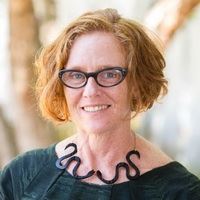 Barbara Barnes, Dept. of Gender and Women’s Studies, U.C. Berkeley
Barbara Barnes, Dept. of Gender and Women’s Studies, U.C. Berkeley
Dr. Barnes is a legend among students, who often arrive early to discuss her previous lectures, sharing epiphanies with each other. Her syllabi contain a balanced mix of foundational texts and newly published works; thus, her students receive a grounded understanding of the history and context of each topic while also responding to recent scholarly discussions. Her readings demand an understanding of complex theories across multiple fields of inquiry. To ensure that each student fully comprehends these concepts, Dr. Barnes establishes a culture of inclusion within the classroom, and this sense of belonging increases trust and safety so that each student feels personally invited to participate….
Dr. Barnes’ lectures are engaging and inspiring. She sparks the imagination and encourages cutting edge ideas. She teaches people how to think critically about the world in which we live while creating a safe environment wherein students learn, explore, and innovate. She does this by perfectly balancing the material she teaches with student participation. Dr. Barnes embodies a level of skill and talent that is extremely rare.
Video prepared by Barbara Barnes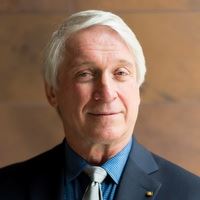 Stephen Hinshaw, Dept. of Psychology, U.C. Berkeley
Stephen Hinshaw, Dept. of Psychology, U.C. Berkeley
Stephen Hinshaw perfectly walks the line between someone distraught by the past and present societal practices around mental illness and someone who is wonderfully hopeful that society can change. He encouraged empathy and understanding supremely. He challenged students to critically think, constantly question, and never fall victim to groupthink. Professor Hinshaw could powerfully articulate the troubles in the mental health field while still leaving students with a sense of optimism and power to change. Never before have I had the privilege of experiencing such a thoughtful, driven, and accomplished teacher on a regular basis. My time in his class is one of the most cherished times in my life. He is incredibly deserving of this amazing honor.
Video prepared by Stephen Hinshaw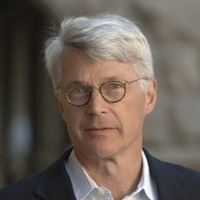 Scott D. Sagan, Dept. of Political Science, Stanford University
Scott D. Sagan, Dept. of Political Science, Stanford University
… In almost every meeting, the central question Professor Sagan would raise was how our work would support the praxis of the policy world. … the quality of his work that I most admire is his capacity to use a thorough inspection of philosophy and history to guide pragmatic policy recommendations. Above all, Professor Sagan is a caring mentor. Though Professor Sagan’s expectations for his students are the highest, I am inspired by his open-mindedness and humility. He listens to my ideas, considers every edit or direction I suggest, critiques my work with honest and helpful comments, and encourages me to publish my own writing. The respect and kindness Professor Sagan shows to his students was evident at a Stanford event in DC this July. Several former research assistants and students showed up to hear his talk, and after the event, we all got together to reminisce over how much we appreciated his guidance and mentorship. Truly, this network of Sagan students is remarkable; grounded by his example, Professor Sagan’s students are eager mentors and have helped me find my own professional and personal directions.
Video prepared by Scott Sagan2019 Laureates
2018 Laureates
|
"the quality of critical analysis and innovation in Ron's courses always exceeds expectations." |
|
"it helps that he also brings to every discussion an additional layer of philosophical discussion that reaches well beyond the historical confines of any text the class reads." |
|
"Every student must attend her office hour at least once and give feed back on the class" |
|
"she is capable of breaking down complicated economics concepts into pieces that are easy to understand and connect to the real world." |
|
|

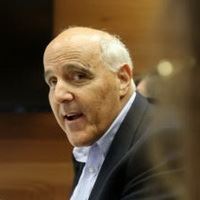
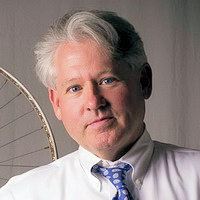
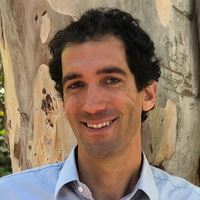
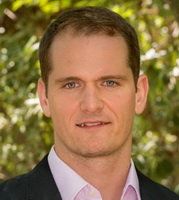
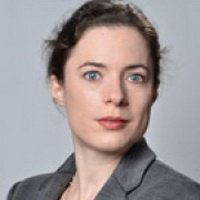
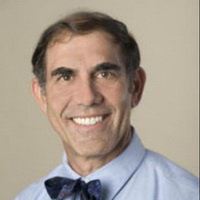
_resize_resize.jpg)
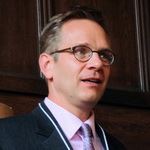
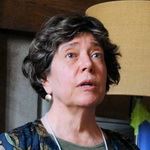
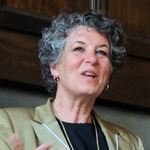

_resize_resize.jpg)
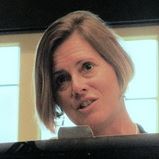 Mary Beth Mudgett, Department of Biology, Stanford University
Mary Beth Mudgett, Department of Biology, Stanford University Jennifer E. Smith, Department of Biology, Mills College
Jennifer E. Smith, Department of Biology, Mills College Claude Goldenberg, Department of Education, Stanford University
Claude Goldenberg, Department of Education, Stanford University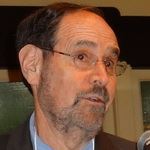 Robert Goldman, Department of East and South East Asian Studies, University of California, Berkeley
Robert Goldman, Department of East and South East Asian Studies, University of California, Berkeley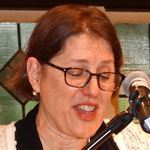 Alessa Johns, Department of English, University of California. Davis
Alessa Johns, Department of English, University of California. Davis
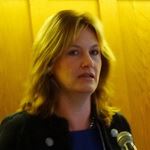 Petra Dierkes-Thrun,Comparative Literature, Stanford University
Petra Dierkes-Thrun,Comparative Literature, Stanford University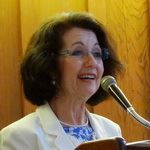 Margherita Heyer-Caput, Department of French and Italian, University of California, Davis
Margherita Heyer-Caput, Department of French and Italian, University of California, Davis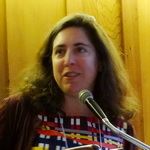 Victoria C. Plaut, School of Law, University of California, Berkeley
Victoria C. Plaut, School of Law, University of California, Berkeley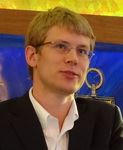 Andrius Galisanka, Department of Polticial Science, University of California, Berkeley
Andrius Galisanka, Department of Polticial Science, University of California, Berkeley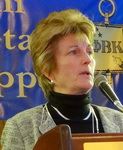 Julie Anne Kennedy, Department of Environmental Earth System Science, Stanford University
Julie Anne Kennedy, Department of Environmental Earth System Science, Stanford University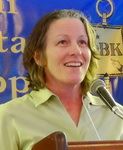 Patricia Simone, Department of Psychology, Santa Clara University
Patricia Simone, Department of Psychology, Santa Clara University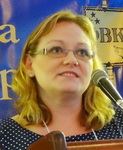 Dari Sylvester, Department of Political Science, University of the Pacific
Dari Sylvester, Department of Political Science, University of the Pacific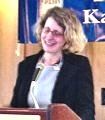 Terri Bimes, Department of Political Science, University of California, Berkeley
Terri Bimes, Department of Political Science, University of California, Berkeley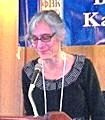 J. Mira Kopell, Department of Film and Media Studies, University of California, Berkeley
J. Mira Kopell, Department of Film and Media Studies, University of California, Berkeley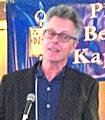 Richard Mitchell, Department of Mathematics, University of California, Santa Cruz
Richard Mitchell, Department of Mathematics, University of California, Santa Cruz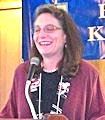 Patricia Plude, Department of Music, Santa Clara University
Patricia Plude, Department of Music, Santa Clara University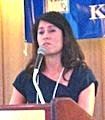 Priya Mariana Shimpi, Department of Education, Mills College
Priya Mariana Shimpi, Department of Education, Mills College


